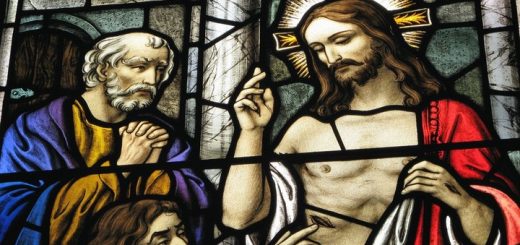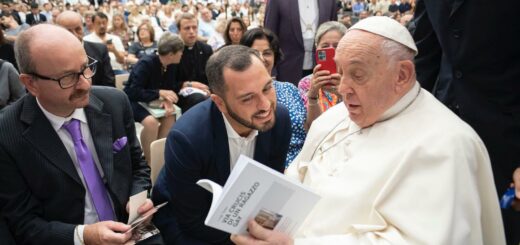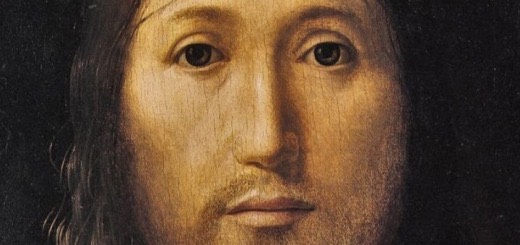After our children come out, the darkness can show you the light (Mark 10, 46-52)
Reflections by Federica F. Zanoni
“And they came to Jericho. As he was leaving Jericho with his disciples and a large crowd, Timaeus' son, Bartimaeus, who was blind, sat by the roadside begging. Hearing that it was Jesus of Nazareth, he began to shout and say: «Son of David, Jesus, have mercy on me!». Many rebuked him to keep quiet, but he shouted even louder: "Son of David, have mercy on me!" Jesus stopped and said: "Call him!". They called the blind man, telling him: «Courage! Get up, he's calling you!
He threw off his cloak, jumped up and came to Jesus. Then Jesus said to him: "What do you want me to do for you?". And the blind man answered him: «Rabboni, may I see again!». And Jesus said to him, "Go, your faith has saved you." And immediately he saw again and followed him along the road.” (Mark 10, 46-52)
In the month of October, in the liturgy of the XXX Sunday of ordinary time, the Church proposed this passage which tells the story of Bartimaeus, a blind man who sat along the road begging and heard Jesus passing by. The name Bartimaeus, if we follow the Aramaic tradition, etymologically it would mean son of Timaeus, that is, son of the impure, as if to indicate to us a condition of little transparency and marginality. What is more lost, more shipwrecked than the life of a man who has lost his sight and is no longer himself on the periphery of existence? Out of the city in complete solitude? Who feels he no longer has any hope for his tomorrow?
The cry she addresses to Jesus, screaming his name forcefully, is the same cry that I heard explode in my daughter and, I believe, in all our boys and girls, the moment they came out, exposing their wounds and the discomfort of living in a body that no longer belonged to them.
Almost a loss of sight, of that bodily dimension and inner authenticity that made them blind, incapable of finding a way out of their existence. While before they saw, now they no longer see and like Bartimaeus they cry out “May I see again”.
Even the people who reproach Bartimaeus to keep silent are the same voices that today would like to silence them: they seem to suggest keeping silent, living in hiding, not cultivating illusions because their cry is useless and harmful, it cannot reach the ears of the world and of God.
But Bartimaeus screams even louder. He seeks a God who accepts his rags. This cry that starts from the depths of her discomfort becomes a prayer and reaches Jesus. Not a request for forgiveness for sins, but for light for dull eyes, for new skin that can still receive caresses.
So courage is needed, because courage is the virtue of beginnings: starting over, taking life back into your own hands, releasing a long-compressed energy like the one that makes Bartimaeus jump up and make him throw away his cloak.
Bartimaeus is reborn in that caress of Jesus who calls him and asks him what he really wants: "That I may see". He no longer wants to see just that side of the road where he was relegated to begging, he wants to discover the entire road. He wants to look up, he wants to raise his head.
So our transgender children were not ashamed of being the most derelict, in fact it was their strength.
Their fight against the darkness of the eyes and the wall of the crowd was born. They too ask God: show yourself as Father, feel like Mother of us kids who live on the margins, make us born again, give us back the Light.
When, from the edge of the road, they are able to get up and throw off their cloak, that is, their old identity, they open paths of light with resources they didn't know they had, they react to situations of death that they thought were hopeless and they start walking again along a path. road that they no longer saw before.
They look up, recovering their self-esteem and dignity of being new people. And we parents must be reborn with them. Inside this embrace we can save ourselves together.






